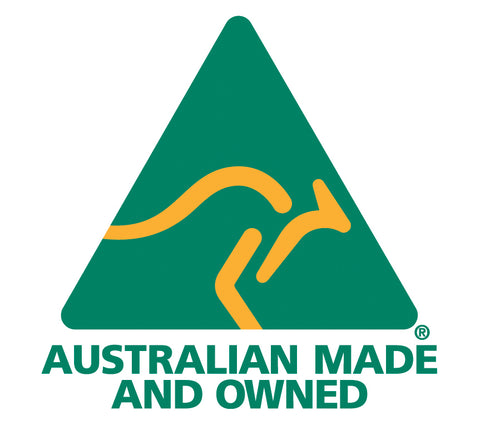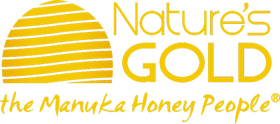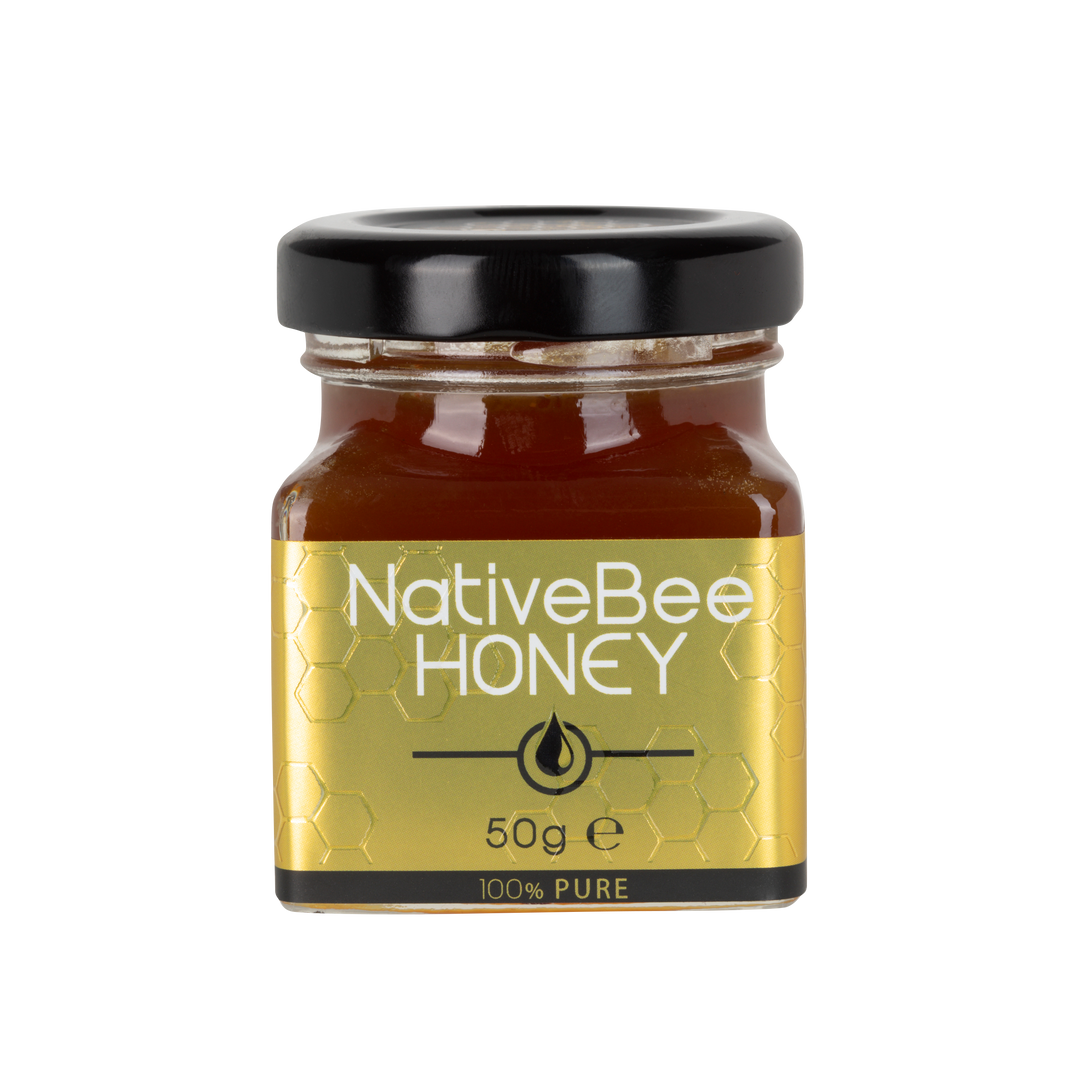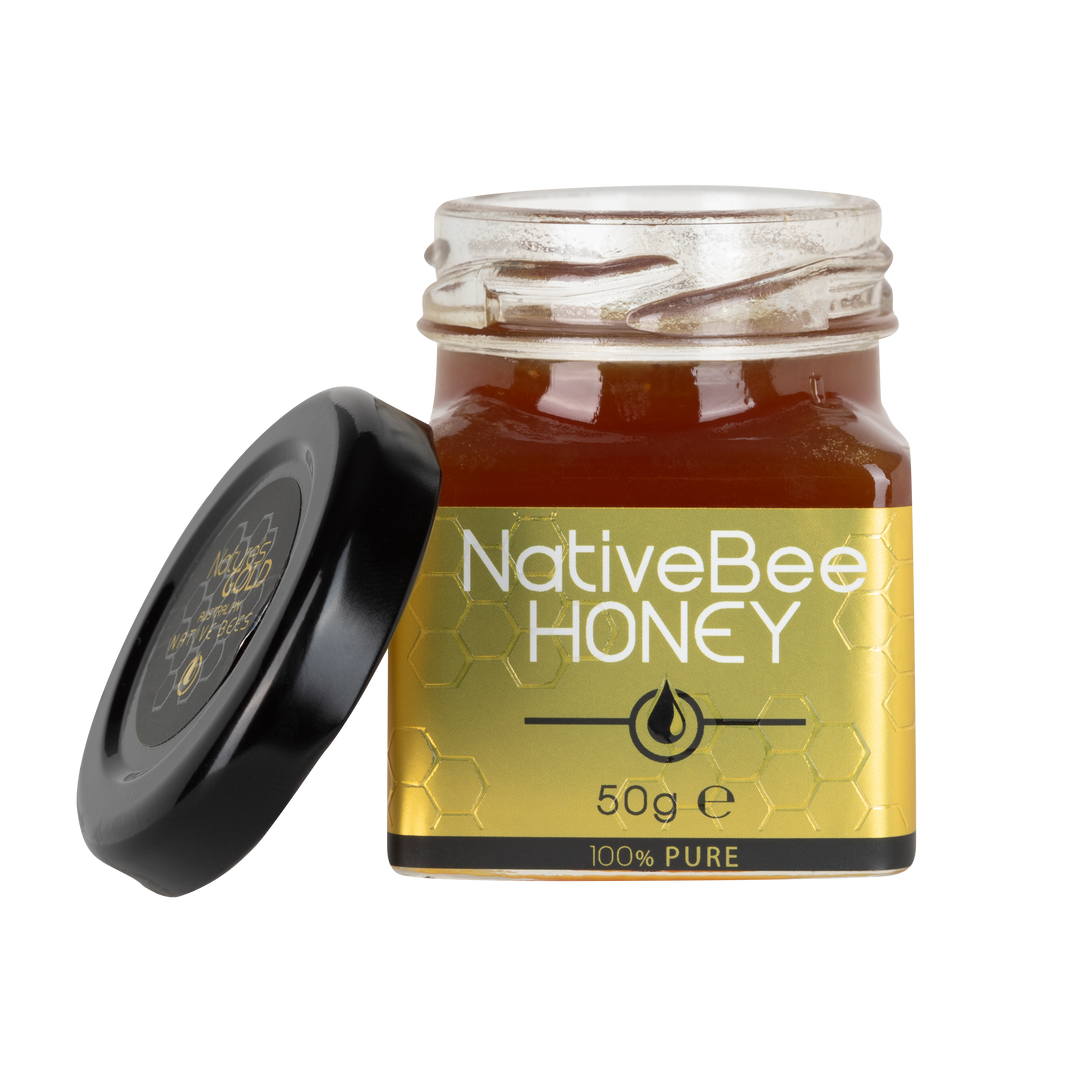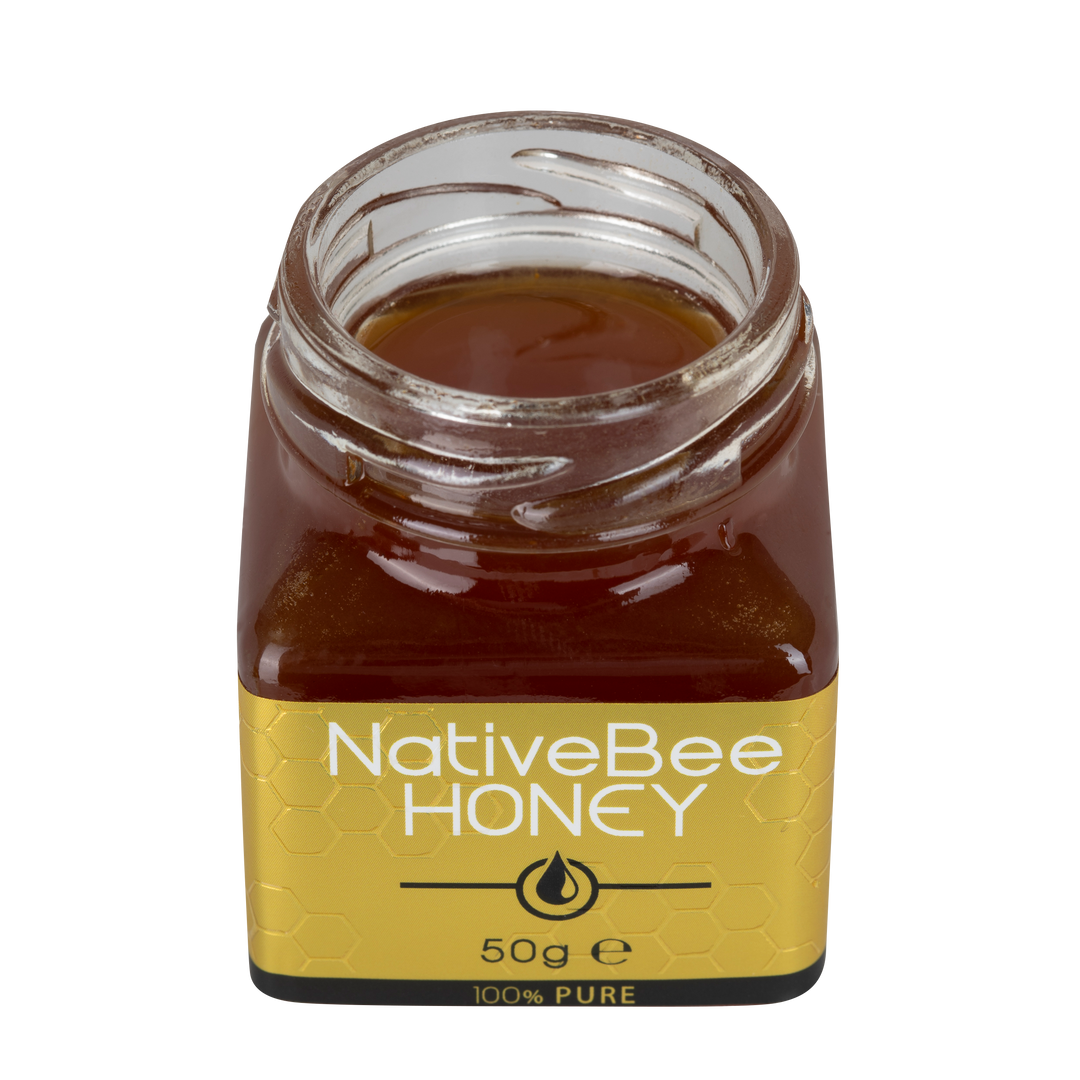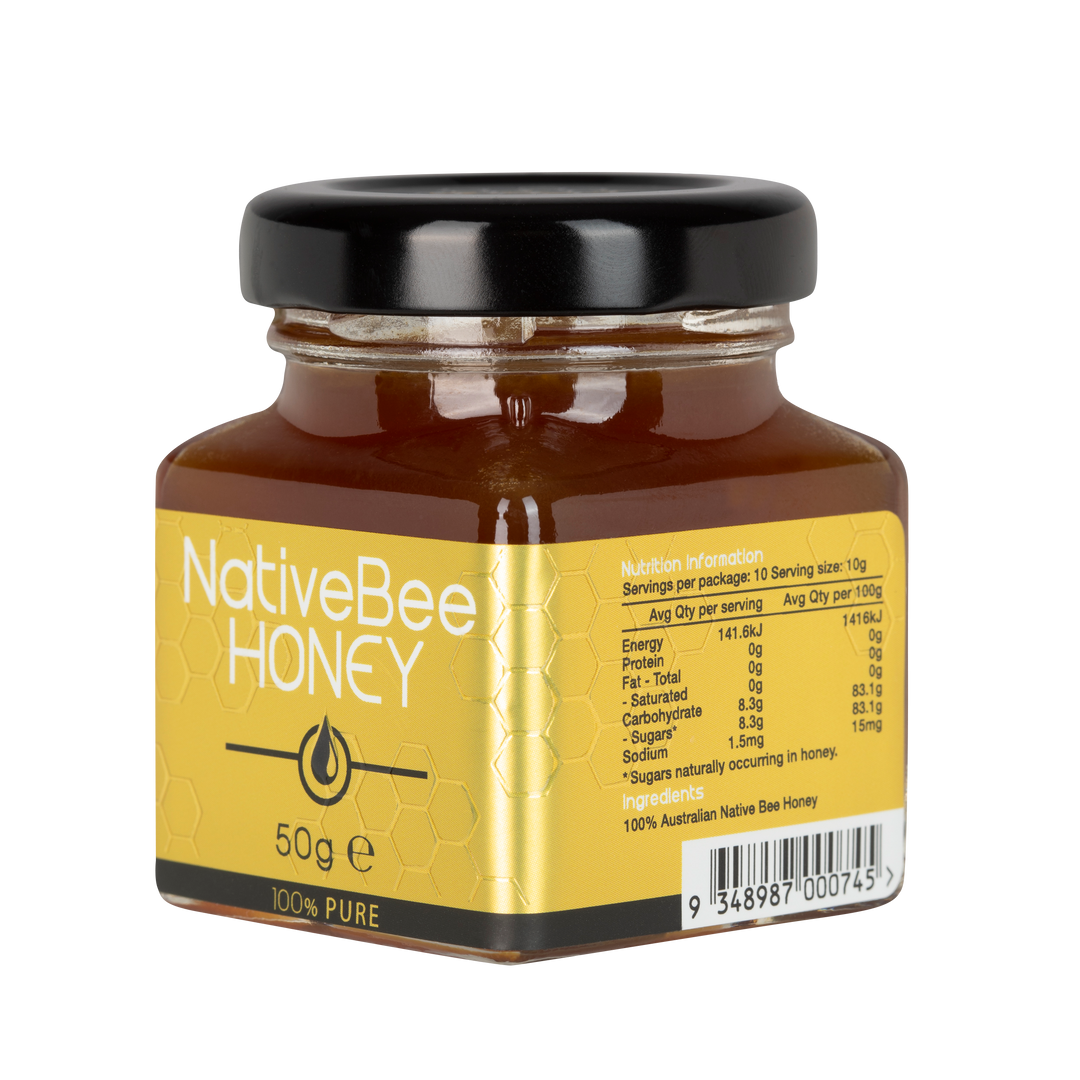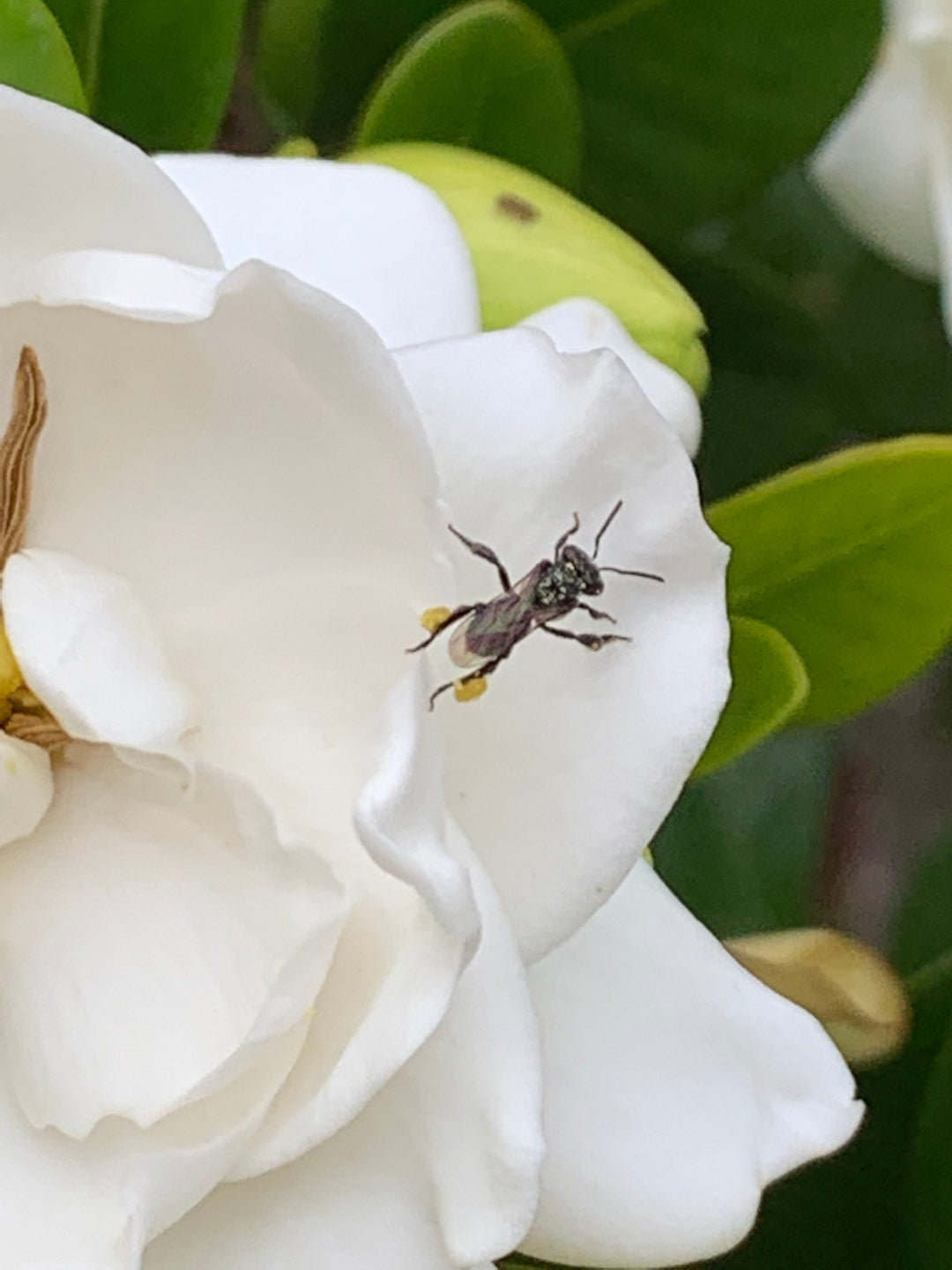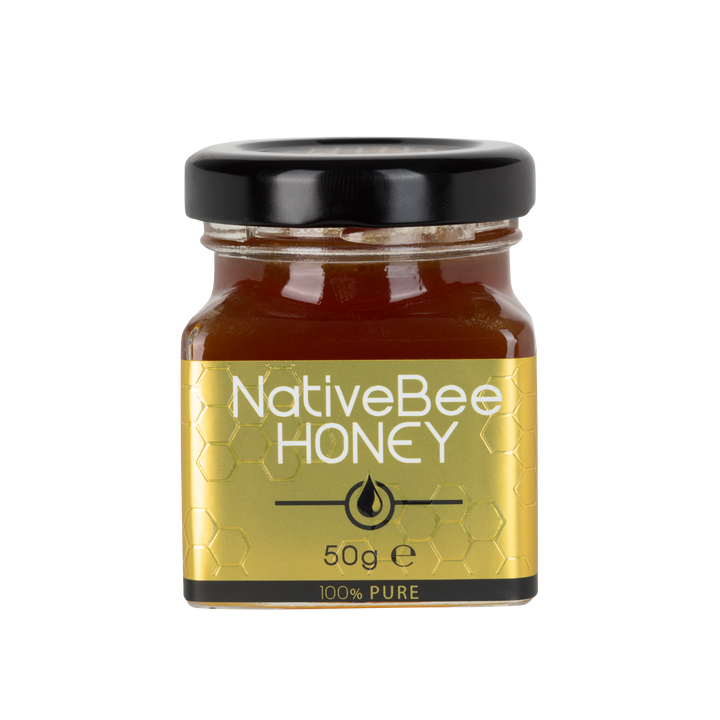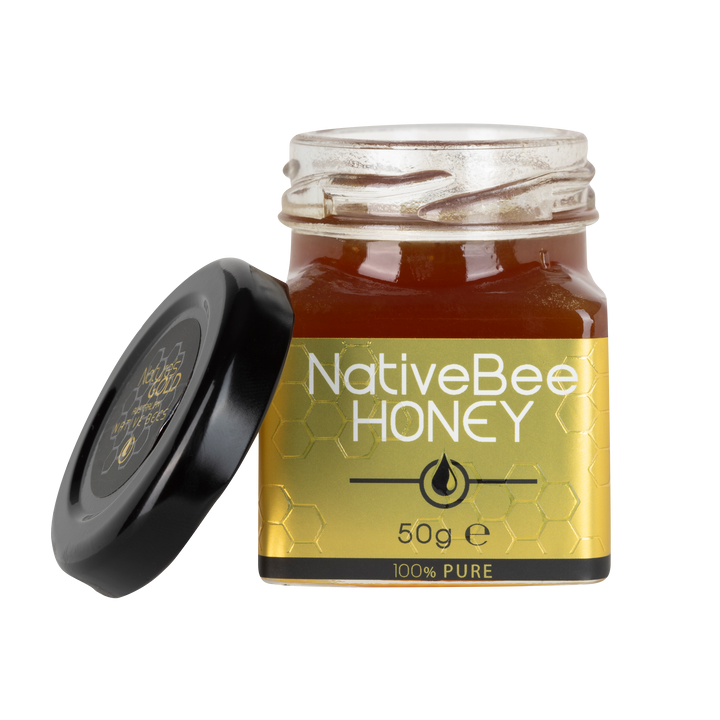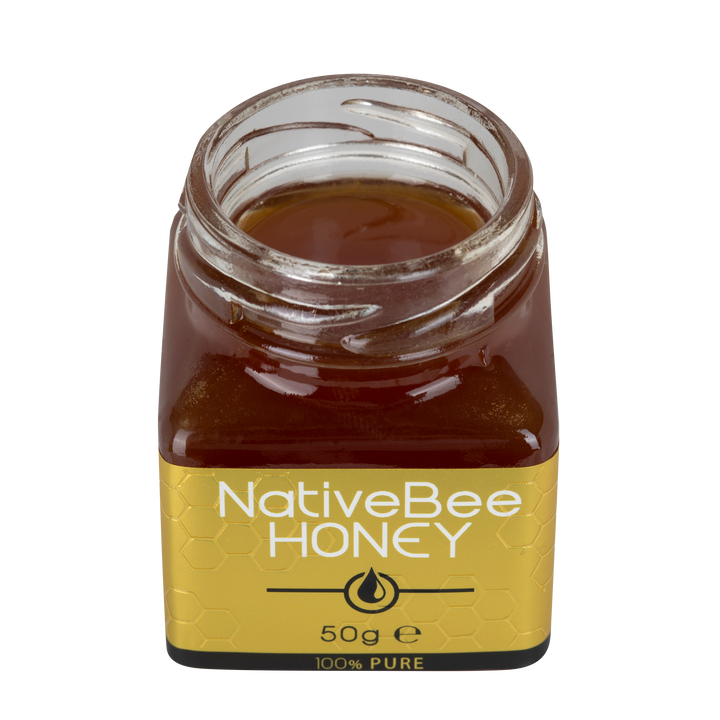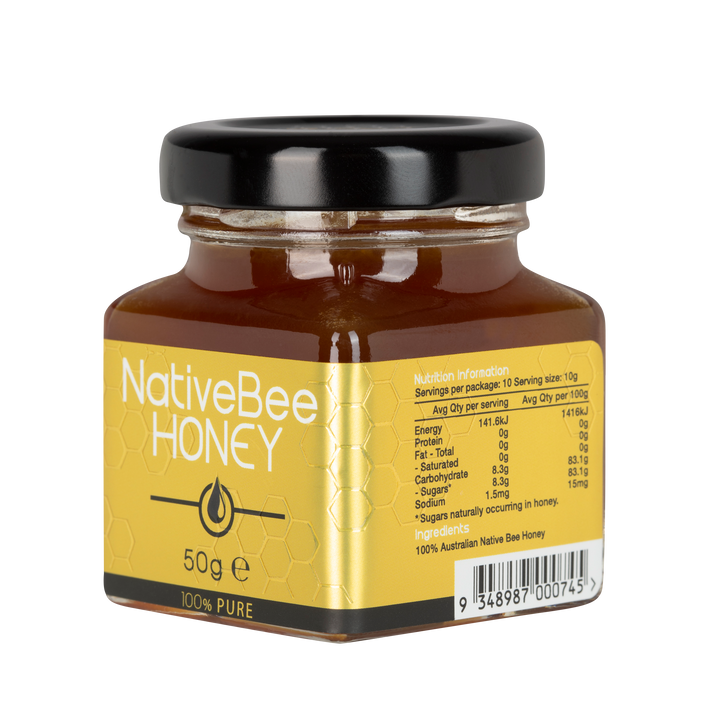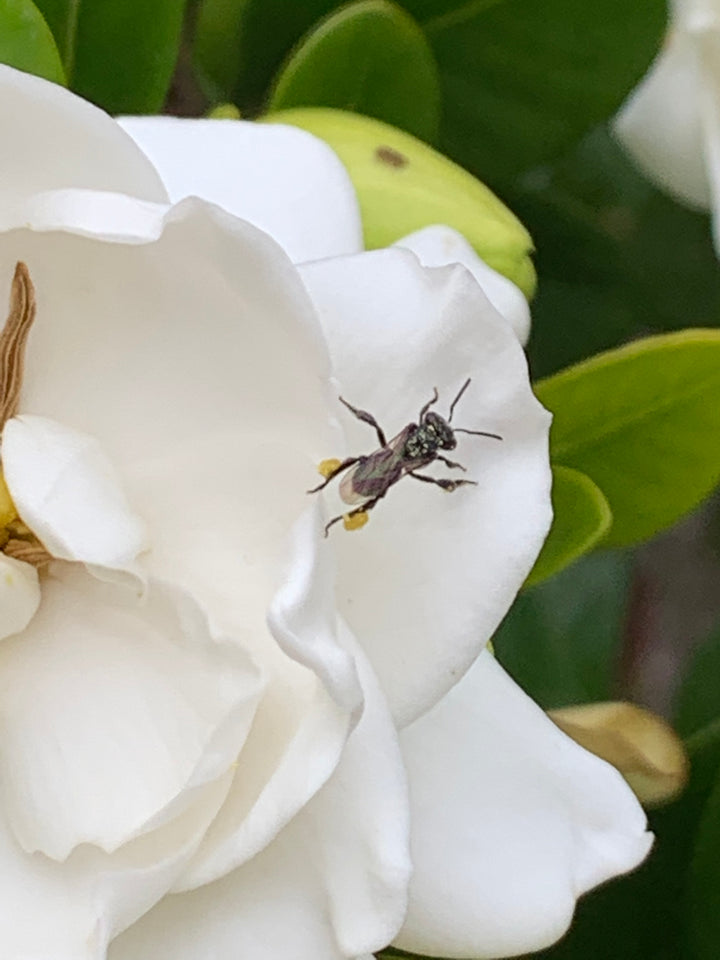Australian Native Bee Honey
- In stock, ready to ship
- Inventory on the way


|
One of the rarest honeys in the world, and it comes from a tiny, stingless bee - the Tetragonula. |
Fact: 1 hive only produces 1 kg of this wonderful honey per year - so this is a very special honey.
PRODUCT FEATURES:
• Contains Propolis - Native bees make more propolis per hive than honey.
• Scientifically proven to have a low Glycemic Index which is very good for Diabetics - read article further down.
• Potent antidiabetic and antibacterial properties - as high as Manuka Honey
• High antioxidant
• the colour is normally a lighter colour compared to Manuka Honey and viscous.
Native Bee honey has a lemony/slightly sour taste, a distinctive “bush” taste—a mix of sweet and sour with a hint of fruit. The taste comes from plant resins—which the bees use to build their hives and honey pots—and varies at different times of year depending on the flowers and trees visited.
 
|
 |
Australian Native Bee honey contains trehalulose - and has the ability to protect cellular membranes and labile proteins against damage and denaturation as a result of desiccation and oxidative stress. Trehalose appears to be the most effective sugar for protection against desiccation, the removal of moisture.
Native Bee Honey has a low GI so could be beneficial to diabetics - having a decreased GI means it takes longer for the sugar to be absorbed into the blood stream, so there may not be a spike in glucose that you get from different sugars.
Read more on Trehalulose.
Read more........https://www.meliponinibeehoney.com/blog/trehalose
Native Bees make only 1 kg of honey per hive per year.
Sugarbag (or pot-honey), as it is sometimes called, has a long history of traditional indigenous use with a range of purported therapeutic properties, including antidiabetic and antioxidant activity.
From Brisbane's early days, residents would ascend Mount Coot-tha for picnics with a view. The bush at the top was cleared, leaving a lone large eucalypt and the mountain was named ONE TREE HILL.
Today, people still gather here for picnics and we are still collecting the "ku-ta" from the beautiful native honey bees.
|
Here we are with Steve, our Native Bee Keeper, and a standard native bee hive. Steve absolutely loves his bees and is very conscious about protecting them and keeping them happy and contented - the bees are kept safe and well during the honey extraction process. There are about 10,000 flying bees in this hive plus the lava, eggs and pupae. |

|
